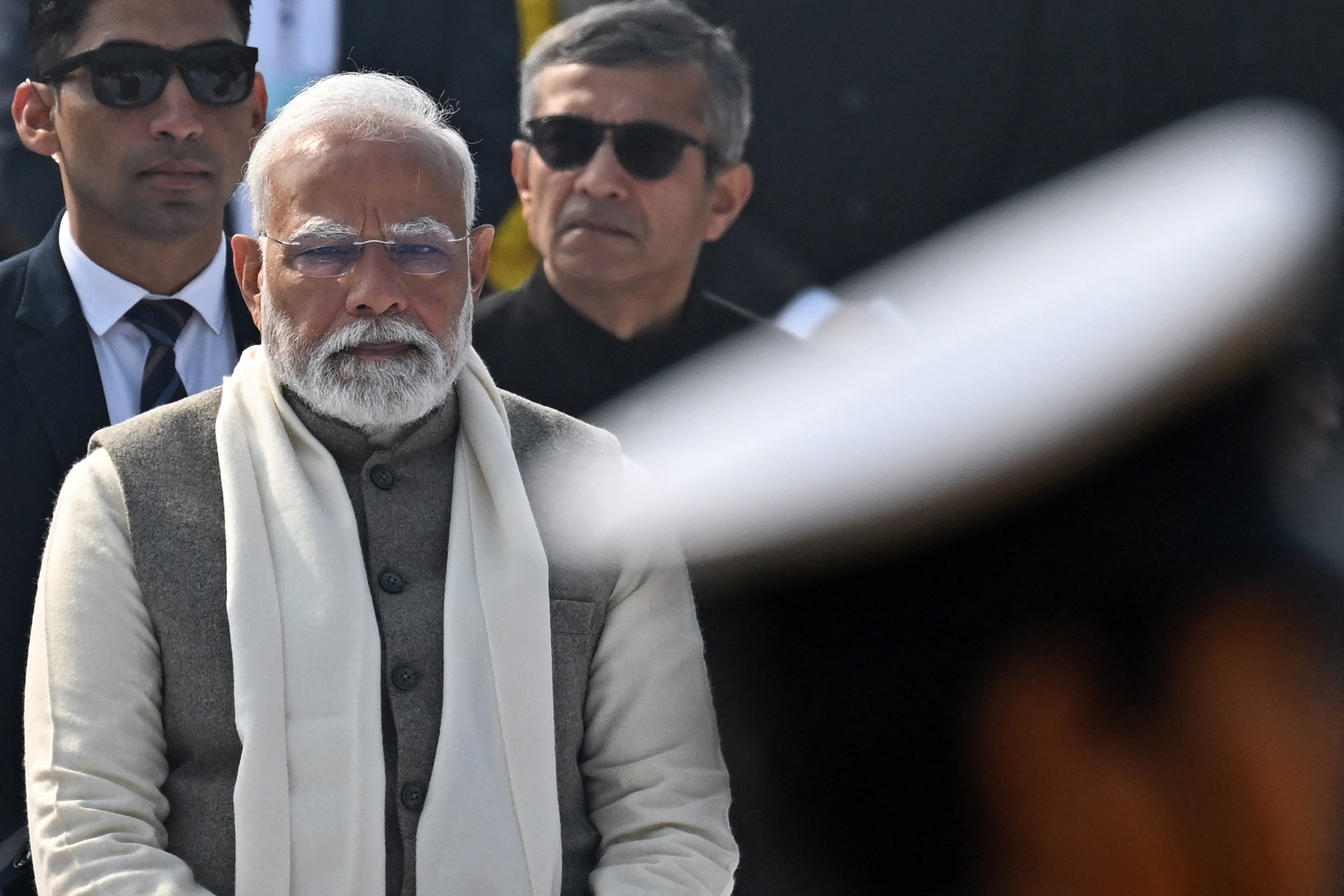
Indian Prime Minister Narendra Modi begins a two-day visit to the United States on Feb 12, with reports suggesting that he has lined up some tariff concessions as he meets US President Donald Trump in Washington and try to avert a potential trade war.
Prime focus during the meeting between Modi and Trump will be about reducing import tariffs to boost American exports to India, Indian trade experts said.
“We don’t want to give anybody any signal that we would like to be protectionist,” India’s Finance Secretary Tuhin Kanta Pandey said on Feb 1 after the federal budget was unveiled in parliament that day. “Our stance is that we don’t want to increase protection.”
The official made the remark after Trump sparked global concerns with sweeping tariff proposals against Canada, Mexico and China, and said that he may also impose levies against other nations and regions.
ALSO READ: India's Modi looks to new economic playbook as risks mount
On Feb 10, Trump announced 25 percent tariffs on all steel and aluminum entering the US. Last month, Trump, during an address to Republican lawmakers, criticized India, China and Brazil as "tremendous tariff-maker(s)". Earlier, during his election campaign, Trump had called India a “very big abuser of tariffs”.
Trade is expected to be one of the top issues that will be discussed during the Modi-Trump meeting, and India may announce a cut in import duties on some US products, said Biswajit Dhar, a former professor at Jawaharlal Nehru University, or JNU, in New Delhi.
In the federal budget, India reduced import duties on motorcycles, cutting tariffs on heavyweight bikes with engines above 1,600cc from 50 percent to 30 percent and smaller ones from 50 percent to 40 percent.
The move to reduce import tax on heavyweight bikes is an attempt to avoid a tariff threat and facilitate the smooth entry of US-made Harley Davidson motorcycles into India, Dhar said, adding that New Delhi wanted to convey a message to Trump that it wants to accommodate his interests.
ALSO READ: US, India make progress on civil buclear deal, Sullivan says
Dhar said it is a different matter whether Trump is going to be satisfied, because he has a long list of products on which he wants tariffs to be reduced.
"Canada and Mexico are the biggest trading partners of the US. If he can act against them, he could easily target anyone,” he said.
India had a trade surplus of $35.3 billion with the US in the fiscal year ending March 2024, according to official Indian data.
India exports a wide variety of goods to the US, including textiles, pharmaceuticals, engineering goods, petroleum oils, machinery and cut diamonds. Bilateral trade between the two countries in 2023 totaled almost $120 billion.
Tariff reduction announced in the budget on products such as motorcycles will benefit American exports, said Ajay Srivastava, founder of the Delhi-based think tank Global Trade Research Institute (GTRI).
ALSO READ: India's Modi sets aside billions for jobs, allies in post-election budget
Amid Trump’s repeated criticism of India as a tariff abuser, India’s budget introduced significant tax cuts on multiple products, many of which will benefit US exports, GTRI noted in a report.
"Whether these reductions will alter Washington's view of India's trade practices … remains to be seen," it said.
It is possible that after the Modi-Trump meeting, India may announce more tariff concessions to boost US exports to India, according to Indian economist Abhirup Sarkar.
Swaran Singh, a professor of international relations at JNU, noted that so far India has been spared from Trump’s tariffs on individual nations.
“In addition to the friendship between Prime Minister Modi and President Trump, India’s recently presented federal budget has also reduced tariffs on American exports to India, like Harley Davidson motorcycles and Tesla cars, bringing India’s tariffs on imports from the US to around 6-7 percent, thus signaling accommodation,” Singh said, adding that the Modi-Trump meeting on Feb 13 “is expected to further fine-tune bilateral irritants”.
Karori Singh, former director and emeritus fellow of the South Asia Studies Centre at India's University of Rajasthan, said the whole world has apprehensions over Trump’s moves.
“Both allies and adversaries are equally apprehensive. It is yet to be seen how his disruptive attitude and policies impact global alignments and domestic politics in US itself. Certainly, some kind of realignment in international relations is expected,” Karori Singh said.
ALSO READ: Indian parliament suspended again in row over US accusations against Adani
He said tariffs have emerged as a main component of US strategy since Trump’s ascendancy in global affairs.
Trump’s tariff-raising “coercive diplomacy” is proving counterproductive, and US trade partners are adopting similar tariff measures on US imports, the professor said, adding that consumers in all the countries, including US, are likely to feel the pain.
In his Feb 10 announcement, Trump unveiled 25 percent blanket tariff on steel and aluminum imports and ended duty-free quotas, exemptions and exclusions.
He also said he plans to introduce reciprocal tariffs later in the week to match what other countries charge on US exports. "If they charge us, we charge them," Trump said.
READ MORE: US-India forging tenuous ties of convenience
Expressing "deep concern" over the latest US steel tariffs, Indian Steel Association President Naveen Jindal said in a statement on Feb 10 that Washington’s move will further disrupt global trade and intensify challenges for the steel industry.
India’s Steel Secretary Sandeep Poundrik, however, said the move will not affect the Indian steel industry much due to the small scale of Indian steel exports to the US.
Aparajit Chakraborty is a freelance journalist for China Daily. Xu Weiwei in Hong Kong contributed to the story.
Contact the writers at vivienxu@chinadailyapac.com


